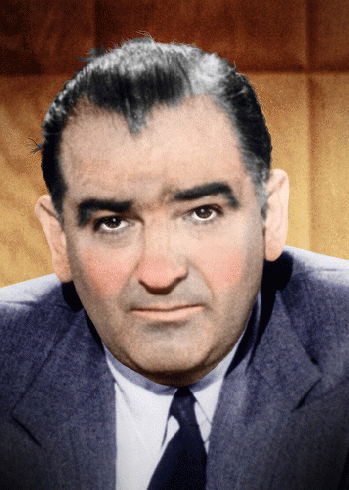An Associated Press story on Tuesday came with this headline: "Analysis: Reality catching up with Trump on Russia," and began:
"WASHINGTON (AP) -- Reality is catching up with President Donald Trump. Hours after Trump dismissed reports that his campaign associates were being scrutinized for colluding with Russia as 'fake news,' FBI Director James Comey confirmed the investigation is real."
Note the slick sophistry here. Trump never denied that there was an investigation. He denied that he colluded with the Russian government to steal the election. But according to the Associated Press, Trump's denial of those charges is disproven by the fact that someone is investigating them.
If you watched the hearing on Monday, you saw Comey asked how the "intelligence" "community" knew that Vladimir Putin wanted Trump to win the election. Comey's answer was nothing but information publicly available for many months, restated as an "assessment." Asked whether the Russian government gave WikiLeaks the Democratic Party emails that showed the DNC sabotaging the Bernie Sanders campaign and denying itself a better shot at winning the general election, Comey said that he "assessed" -- which seemed clearly to mean: speculated based on the absence of any evidence -- that Russia did not do so directly but used a "cutout."
None of this makes it into the AP, which continues:
"The FBI chief also repeatedly insisted there was no evidence to back up Trump's explosive claim that his predecessor wiretapped his New York skyscraper. And Adm. Michael Rogers, head of the National Security Agency, knocked down a report about Britain helping President Barack Obama with the alleged surveillance, although the White House had pointed to the report to try to boost Trump's case. Taken together, the disclosures in Monday's lengthy House intelligence committee hearing amounted to an extraordinary undercutting of a president, whose headline-grabbing accusations and Twitter-friendly attacks crumbled quickly under the weight of sworn congressional testimony from some of the nation's top security officials."
Yet, the possibility that the baseless assertions Trump was blurting out were false does nothing whatsoever to prove that the baseless assertions coming from his accusers are true. Nor does this address the comments from NSA whistleblower Bill Binney that the NSA very likely did have material from snooping on Trump for the simple reason that it is systematically snooping on everyone, while the perjurers who deny that to Congress continue to be treated as respectable authorities. Nor is the AP or any other corporate news company addressing the problem of Trump apparently not having access to the U.S. government's information despite being president. Nor is anyone questioning Comey's refusal to mention any details about anyone under investigation now, while he was willing to make public an investigation of Hillary Clinton pre-election at a time when he now claims there was also an investigation of Donald Trump that he chose to keep silent about.
The AP does, however, take the time to inform us that if we disagree with it, we (even those of us pushing for a Trump impeachment on fact-based grounds) are irrational Trump supporters (even as the AP gets around to admitting that no evidence of wrongdoing with Russia has been produced):
"Many of Trump's most ardent supporters are unlikely to be swayed by Monday's spectacle. Still, Trump's credibility and his standing as a reliable ally for his fellow Republicans in Congress are less assured. Even if his advisers are ultimately cleared in the Russia probe, as the White House insists they will be, the investigation could loom over Trump's presidency for months or even years, distracting from the ambitious domestic agenda he's vowed to enact."
AP then cites the media's love for the Russia conspirascandal as evidence of its importance:
"That reality was abundantly clear Monday. Most cable news channels carried Comey and Rogers' five hours of testimony live instead of the first congressional hearing for Neil Gorsuch, Trump's widely praised nominee for the Supreme Court. The Russia hearings came as Trump tried to give a hard sell to Republicans wary of his health care package, a legislative gamble with long-lasting implications for Trump's relationship with his own party."
"We're an empire now, and when we act, we create our own reality. And while you're studying that reality -- judiciously, as you will -- we'll act again, creating other new realities, which you can study too, and that's how things will sort out. We're history's actors . . . and you, all of you, will be left to just study what we do." --Karl Rove






